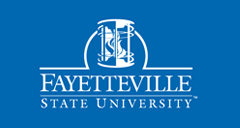Abstract
Historically Black colleges and universities (HBCUs) are home to almost 400,000 of the nation’s college and university population and account for nearly 25% of degrees conferred to African Americans, according to Hale (2006). They have been the launching pads for three-fourths of African Americans who hold doctorate degrees, three-fourths of Black officers in the military, and four-fifths of African American federal judges (Hale, 2006). In addition, fifty percent of African American faculty in predominantly White research universities received their bachelor’s degrees at an HBCU (Hale, 2006). These are significant percentages given the relatively small number of Black colleges and universities in the country.
While some attention has been paid to the success of historically Black colleges and universities in facilitating access to mathematics and science careers for their graduates, the mechanisms by which Black colleges promote this access have largely gone unexplored in the literature, with a few notable exceptions (Hilliard, 1995, 2003; Southern Education Foundation, 2005; Scriven, 2006; Tucker, 1996). These mechanisms are also often viewed as static, without emphasis on the traditions and practices that influence succeeding generations of mathematics students and faculty. These traditions and practices, we argue, are rooted in social, cultural, and historical contexts that are integral to Black colleges’ success in facilitating mathematics success. We propose a paper that explores the characteristics and practices of Black colleges that support mathematics development, incubate mathematical talent, and disseminate effective practices beyond the walls of these institutions and across generations of students.
Recommended Citation
Borum, Viveka; Hilton, Adriel Adon; and Walker, Erica
(2016)
"The Role of Black Colleges in the Development of Mathematicians,"
Journal of Research Initiatives: Vol. 2:
Iss.
1, Article 6.
Available at:
https://digitalcommons.uncfsu.edu/jri/vol2/iss1/6
Included in
Curriculum and Instruction Commons, Educational Assessment, Evaluation, and Research Commons, Educational Leadership Commons, Educational Methods Commons, Higher Education Administration Commons, Higher Education and Teaching Commons
